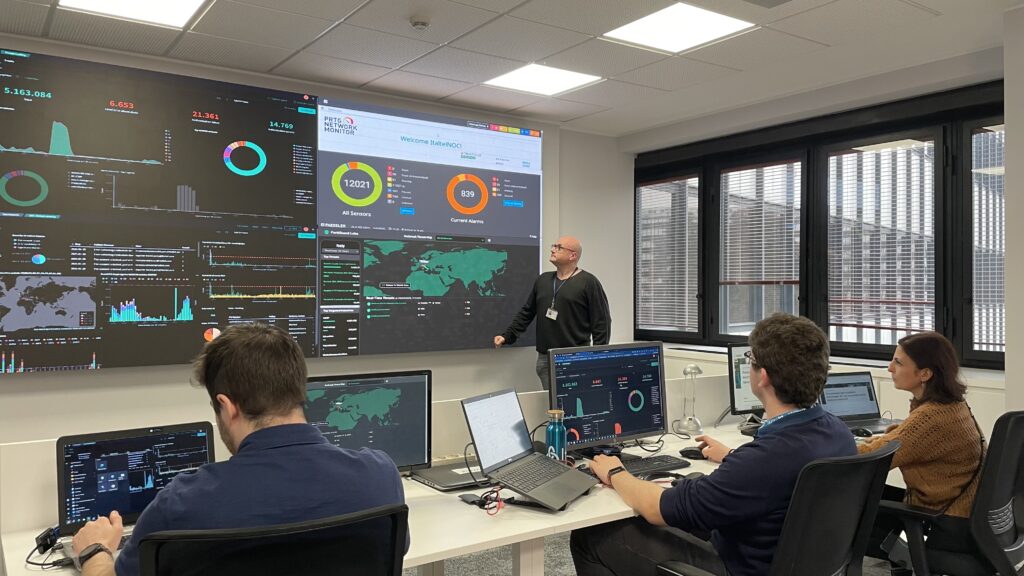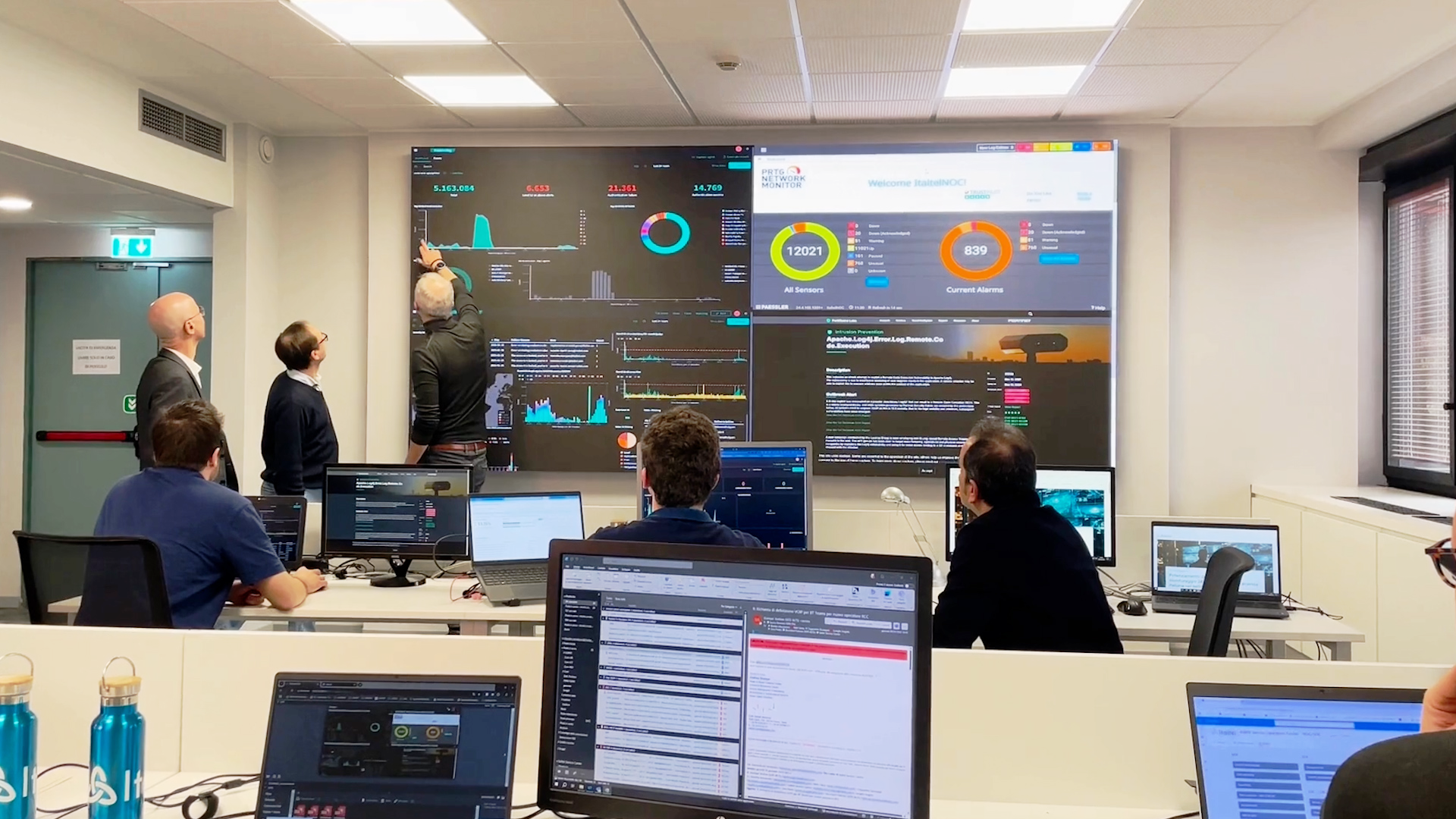INTERVIEW
Interview with Paolo Allegra, Head of the Digital Operation Center at Italtel
At Italtel’s Milan headquarters, a new area called the Digital Operation Center has been established, which houses the NOC (Network Operation Center) and the SOC (Security Operation Center). Here, teams of expert technicians work 24/7 to provide vital services to the company’s clients.
We spoke with Paolo Allegra, Head of Global Business Excellence at Italtel and manager of the Digital Operation Center, to better understand this facility and its strategic importance for Italtel.
1) Paolo, what is the main objective of the new NOC and SOC site in Milan Caldera?
The new NOC and SOC site at Italtel marks a fundamental step in consolidating our global strategy. The goal is to implement a “best in class” model in the field of managed services, with a strong focus on highly specialized centers that can ensure increasingly effective monitoring, analysis, and incident management. In this new center, we’ve focused on integrating skills, cutting-edge technologies, and best practices, with special attention to service continuity and the protection of sensitive data.
2) What benefits does the new Digital Operation Center bring to our customers? How is service continuity and data protection ensured?
Thanks to the new facility, we can offer even more advanced 24/7 monitoring to ensure operational continuity for all networks entrusted to us and to protect our clients’ sensitive data. Today, Italtel’s NOC and SOC provide technical support for the networks of major national service providers as well as large public and private sector clients. We monitor the ICT infrastructure of several major hospitals, banks, and utilities. In particular, through our SOC service, we protect against cyberattacks targeting hundreds of servers, PCs, and other network devices, including Microsoft 365 cloud environments. Our commitment is not only to data protection but also to service continuity, in compliance with international standards such as ISO 27001, GDPR, and ISO 22301. Our ongoing focus on security allows clients to concentrate on their core business, knowing that their systems are constantly monitored and protected.
3) What are the defining features of an innovative NOC, and how does Italtel integrate these into its service?
An innovative NOC is not limited to real-time monitoring—it must also predict and act proactively. It should support the client in the structured management of routine operational activities, including “change management,” i.e., daily modifications typical of an ICT network’s life. Key features include advanced monitoring (observability), predictive capabilities, the use of AI and ML, management of hybrid scenarios (On-Prem and Cloud), virtualization, the adoption of SDN (Software-Defined Networking), and above all, the application of proven and well-documented procedures. At Italtel, we integrate these technologies with centralized, user-friendly dashboards to ensure optimal and timely management of resources and data.
4) What is the impact of new technologies like AI and machine learning on monitoring and security management?
The introduction of AI and machine learning has revolutionized our approach to monitoring and security management. These technologies allow us to analyze vast amounts of data faster and more effectively, identifying anomalies and predicting risks that would have gone unnoticed in the past. Predictive analysis, in particular, helps us anticipate incidents and act before damage occurs, significantly enhancing our response capabilities.
5) How are security incidents managed, and what are the key functions of a Security Operation Center (SOC)?
A SOC is the operational heart of cybersecurity management. Its main activities include prevention, constant monitoring, threat detection, and incident response. At Italtel, we continuously monitor suspicious events, manage alerts and escalations, and proactively hunt for threats. Additionally, we handle vulnerability management and respond immediately to cyberattacks, with a focus on forensic analysis and continuous reporting.
6) How are skills developed within the Digital Operation Center, and what role does innovation play in daily operations?
Skills in our center are developed primarily through well-established knowledge-sharing practices and structured mentoring and coaching processes to ensure ongoing professional development. We also attract young talent. Technological innovation—especially through automation and orchestration platforms—is essential. However, what truly sets us apart is our ability to “engineer” the use of these technologies, meaning our capability to observe, interpret, and act on data in real time to anticipate problems and improve processes.



